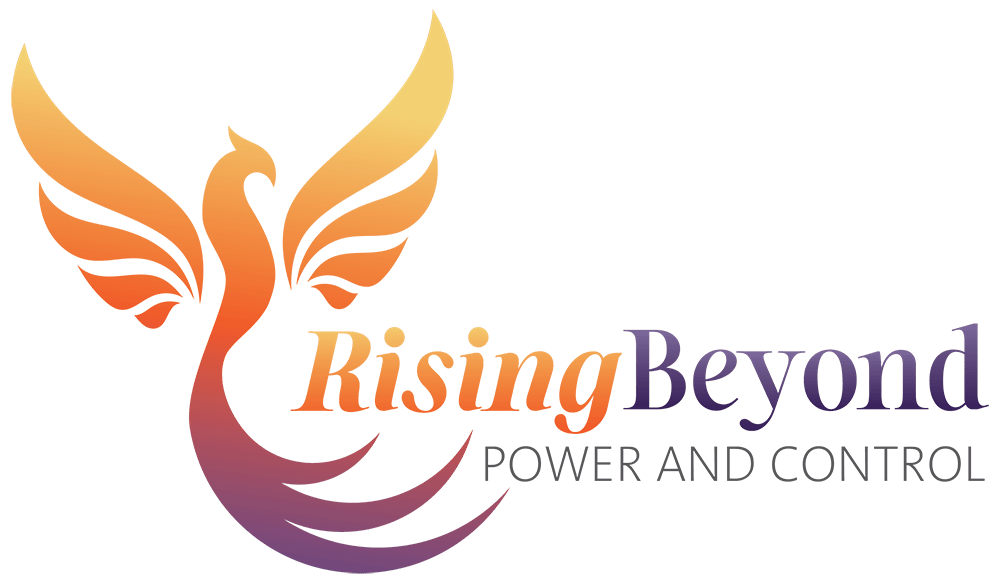 How many times do you hear women say, “I did it for my children"? It’s nearly a universal answer. We sought an education or a new job to give them a better life. If they need extra care, we find a way to spend less time at work and more time with our children. We move to a better school district. We travel to find the right specialist. We throw them a birthday party when what we really need is a new bra and underwear or maybe a medical procedure with a decent copay and some recovery time. This is the world that we live in. I know that I built my entire mid-twenties to mid-thirties around mothering. It’s what culture tells us is an acceptable use of our time and resources. We are praised for it. It feels good. Until you do something for yourself, which may also be for your children, but the primary goal is your wellness. Then people start to talk, and those around you who benefit from your martyrdom become angry. Now, they are having to spend some of their time and resources parenting. It is appalling to society and to a partner who feels fully entitled to use all of their resources for their benefit and think that women should be the only one to sacrifice time and resources for child rearing.
0 Comments
By Sybil Cummin, MA, LPC, ACS

How often do you find yourself saying “Yes” to something you know you do not have the time or bandwidth to take on just to avoid conflict?
I think this is an extremely common occurrence, especially for women. But, if you are healing from domestic violence, narcissistic abuse, or an abusive family of origin, these patterns of saying “Yes” may be more than just trying to avoid hurting someone’s feelings…these patterns likely allowed you to survive. I’ve just wrapped up a conversation with my new friend Anita Sandoval on The Rising Beyond Podcast, and I feel like this episode can be used as a guide to move you from constantly fawning and people-pleasing to feeling more empowered to make decisions based on your needs and wants. Anita shared some personal experiences that were tough and led to her constantly foregoing her own needs in order to take care of an abusive partner and stay in the good graces of her family. She would likely say that challenging these patterns was not a walk in the park but was well worth it. So, pull up a chair, and let's unpack some of the lessons that can be learned from this conversation. By Sybil Cummin, MA, LPC, ACS  Maintaining a meaningful connection with your child when stuck in a “high-conflict” co-parenting situation can be a daunting task, especially if they spend more time with your ex-partner. Strategies will be different depending on the age of your child, so in this article we’re going to share strategies specifically for older kids that can help bridge the emotional gap and foster a sense of connection despite the circumstances. If you believe that there is a strong likelihood that your child is being indoctrinated to believe lies about you, these strategies can help but likely will not be enough to completely challenge that level of conditioning. Stay tuned for future articles where we will go into more detail on these cases. Understanding the Dynamics Navigating the complexities of maintaining a connection with your child when they spend more time with your ex-partner means taking a look at various factors. The age and development of the child, your pre-existing relationship, and their feelings toward the living situation all play a crucial role. The strategies in this article are tailored for older kids, with the understanding that these can be adapted for younger children. By Sybil Cummin, MA, LPC, ACS  Do y’all remember that ridiculous spectacle of Charlie Sheen where he basically coined the term “Winning!” It shined a spotlight on his mental health state and was also annoying in my opinion. And it feels remarkably similar to how a narcissistic ex acts after the relationship has ended and they have found ways to manipulate the family court system. So, what does it mean in your ex’s world to win?
The difficult part about this entire situation is that the way that our family court system is set up allows and actually seems to encourage these behaviors. By Sybil Cummin, MA, LPC, ACS  Having a hard time falling asleep worrying about your kids? How are they doing in school? Are they making healthy friends? Am I preparing them for all that life throws at them? Does worry about how your child is coping with the new parenting plan or worry about their safety at the other home keep you up all night and hypervigilant all day? You are not alone. Parents worry a ton in general, however if you have experienced domestic violence or narcissistic abuse or are dealing with family court with your abuser, this is likely not an every-now-and-then issue. You are probably chronically losing sleep. Is there anything we can do about it? By Sybil Cummin, MA, LPC, ACS  If I had a dollar for all of the times that I heard a survivor of domestic violence or narcissistic abuse tell me that if they knew then what they know now about post-separation abuse, they would have done things differently, I would be rich. Victims are told to escape and that things would get better and safer. But is this really the case? In my experience and those of my clients, this could not be any more false. And this is especially true if you share children with your abusive partner. You will experience abuse in another form, post-separation abuse. So, what is post-separation abuse? Abusive relationships are all about one partner gaining and maintaining power and control over their victim. When an abusive relationship ends, the abuser’s need for power and control doesn’t. In fact, because there is a significant decrease in the amount of control they have over their victim, very often the abuse increases. By Sybil Cummin, MA, LPC, ACS  In an ideal world, co-parenting would be a great idea. You would be able to discuss your concerns respectfully and keep the children's best interest at the heart of every decision. Although you might disagree on some things, you could have trust that your ex is coming from a place of authenticity and genuine care for your children. You would NOT feel anxious any time you received a text, email, or call. But, really? With this guy? Co-parenting? Ok ok, all jokes aside. You are in it and have to figure this out. So let's take a look at what is in the best interests of your kiddos, what is in your best interest, and what is in the best interest of your ex. By Sybil Cummin, MA, LPC  As I sit with my female clients day after day, a common theme emerges. Right now, they are extremely angry and that makes them extremely uncomfortable. It is probably helpful to mention that all my female adult clients are victims and survivors of domestic violence and narcissistic abuse. Maybe that makes more sense to you now. That they are angry at the abuse they have endured and maybe that they are angry at themselves for allowing the abuse to happen. You are not wrong. Many are angry for exactly these reasons. But they haven’t always been angry. It wasn’t safe for them to be angry. So, what has changed? Similar to the grief process when someone you have loved has died, anger is a stage in a larger process of healing. These women are also grieving, but they are grieving the loss of a person and a relationship that was not real. They are grieving the promise that was made to them over and over again as a way to keep control of them. Some are grieving the loss of the years they spent trapped, and some are grieving the loss of their identity completely.  "If what is being mirrored back to you is a person worthy of love and respect, a reflection of your strengths and your greatness, you will likely agree and walk with your head held high. Ready to take on the world. If the people around you are reflecting something different, maybe it’s time to change who is around you. Sounds easy. But what if the people you have around you say that they love you and that they will take care of you, but the reflection does not match? If you believe that you are unworthy and are broken based on what you see in the people around you every day, the idea of leaving and finding your new village of people where your greatness will be reflected seems impossible. In fact, you probably will take on the reflections you receive back to you as truth. That you are unworthy. That you are broken." In her article for bizcatalyst360.com, Sybil Cummin, MA, LPC, ACS, discusses the importance of surrounding yourself with a genuinely supportive inner circle -- people who will reflect and validate the best version of you -- when healing from a relationship of domestic violence and narcissistic abuse. Read the full article here. By Sybil Cummin, MA, LPC, AC  What?!?!?! You’ve got to be kidding me?!?!?! My ex has won over and over again. No accountability. The smear campaigns and false allegations against me (even on the stand), and you are telling me to let him win?!?! If you are thinking that we can’t be friends anymore, let me explain. When you are going through a “high conflict” divorce with an abusive ex, I’m sorry to tell you that it is going to be a battle. A long one at that. And for most survivors of abuse, it feels like you are doing everything just to keep your head above water day in and day out. There is nothing fair about this situation. Nothing. So, what can you do to get to shallow enough water to stand up for yourself and your children? |
AuthorSybil Cummin, MA, LPC, ACS, is a Licensed Professional Counselor who specializes in working with victims and survivors of narcissistic abuse. Archives
July 2024
Categories
All
|
About |
Resources |
Member Content
|
The content on this website is meant for informational and educational purposes only and is not intended to substitute medical or mental health diagnosis or treatment. Rising Beyond Power and Control also differentiates between coaching services and counseling services. You can read our full Disclaimer here.

 RSS Feed
RSS Feed
